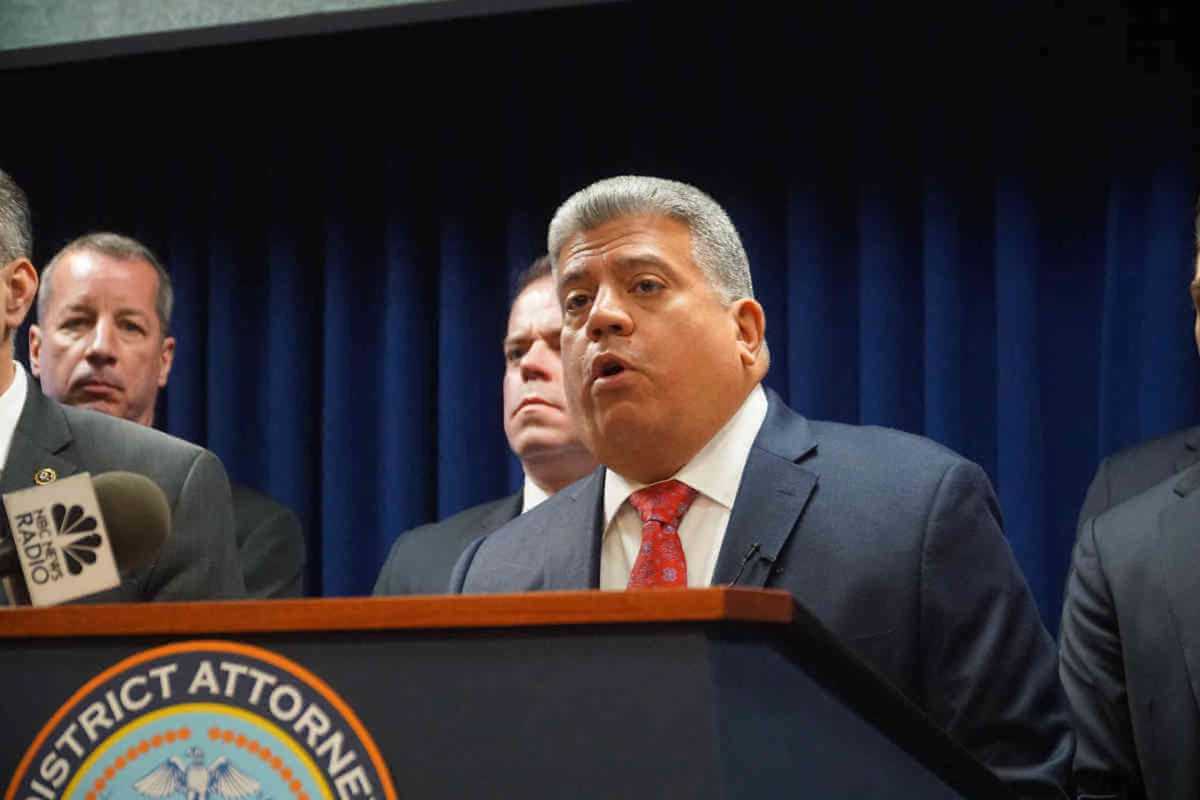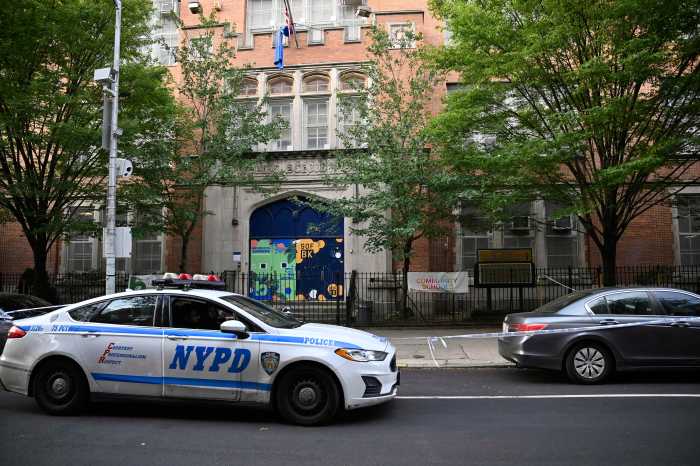District Attorney Eric Gonzalez released a 100-page study on July 9 investigating the cases of 25 wrongfully-convicted Brooklynites who had spent a combined 426 years in prison — which the borough’s top prosecutor hopes will serve as a tool for improving the criminal justice system nationwide.
“For us to build community trust, especially now, when so many people in this country are expressing anger and despair with the system, we must reckon with and be transparent about the mistakes of the past,” said Gonzalez in a statement. “We must also learn from these errors so that we can avoid them in the future. It is my hope that this study will contribute to these goals.”
The report gives a deep look into 20 cases that had been re-investigated by the DA’s Conviction Review Unit — which former District Attorney Ken Thompson established in 2014 to help investigate and overturn wrongful convictions.
Those 20 cases led to the exoneration of 25 people between 2014 and 2019, according to Gonzalez, who said the report gives a first-of-its-kind insight into what factors lead to a convicted person being exonerated.
“Around the country, the reasons why a prosecutor’s office chooses to support a convicted person’s exoneration are not usually disclosed in detail,” he said in the report. “The District Attorney made the decision to do something different here — to invite the public to look inside these cases and to reveal the [Kings County District Attorney’s] own assessment as to what went wrong in each of them. And insofar as we are aware, this is the first time any prosecutor’s office in the nation has done so.”
Most of the wrongful convictions happened between the 1980s and 1990s, and all but one of the exonerees in the study were people of color. Three of them died in prison and were exonerated posthumously, according to the report.
Done in collaboration with the advocacy nonprofit The Innocence Project and the law firm WilmerHale, the study examines eight factors, one or more of which was present in each exoneration.
The most common factor in each case was prosecutor misconduct or error, which played a role in 17, or 85 percent, of the cases. In those instances, the attorneys either did not properly scrutinize the amount of evidence at hand, or the reliability of that evidence, according to the report.
“Doing justice also means doing everything in the prosecutor’s power to ensure that the trial is fair,” the report states. “Prosecutors in a number of these cases failed to meet this standard, whether on direct examinations, cross-examinations, or openings/summations, at times exaggerating or mischaracterizing testimony on critical questions presented to the jury.”
Police misconduct or error was the second most prevalent factor in the exonerated cases, having influenced 13 of the exonerations. In those instances, the report notes, there were serious red flags with the reliability of confessions and witness testimony — and in three cases, cops even coached witnesses, failed to give crucial information, or provided false testimony.
In November, Gothamist revealed that the DA’s office also kept secret lists of dozens of police officers they deemed to have credibility issues.
Other significant factors included nondisclosure of evidence that could help stop a conviction, which was present in 45 percent of the cases. Witness credibility issues and defense lawyers doing a bad job were also factors in 40 percent of the studied cases.
The DA also showed the havoc these wrongful convictions can wreak on people’s lives by highlighting the case of a man under the pseudonym Brian Davidson, who grew up in Brooklyn during the same time as Gonzalez, but spent almost three decades locked up for a rape and robbery he did not commit in 1987.
“Brian and I were born just one year apart and raised in Brooklyn by mothers who came here from somewhere else to make a life for themselves and their families. But our lives were set on very different courses — irreversibly so — in March of 1988, when Brian was arrested for a crime he had nothing to do with,” Gonzalez wrote in the report. “That spring, I was in my first year of college. Brian spent the next 30 years in prison, while I graduated from college and law school, became a prosecutor in the very county in which he was convicted, and ultimately, was elected District Attorney of Brooklyn.”
The Conviction Review Unit recommended Davidson’s conviction be vacated because, among other issues, investigators concluded that the main witness for the prosecution had misidentified Davidson as one of her assailants, according to the report.
Gonzalez’s office successfully requested his conviction be overturned in late 2017, and Gonzalez recounted how it was emotional and gratifying to bring justice to Davidson.
“It was an emotional day, gratifying because justice was done and heartbreaking that it came so late and at such cost,” he said. “I identify with Brian, and we all should. All of us are diminished when the criminal justice system fails and makes people’s lives worse rather than better.”
This story first appeared on BrooklynPaper.com




































